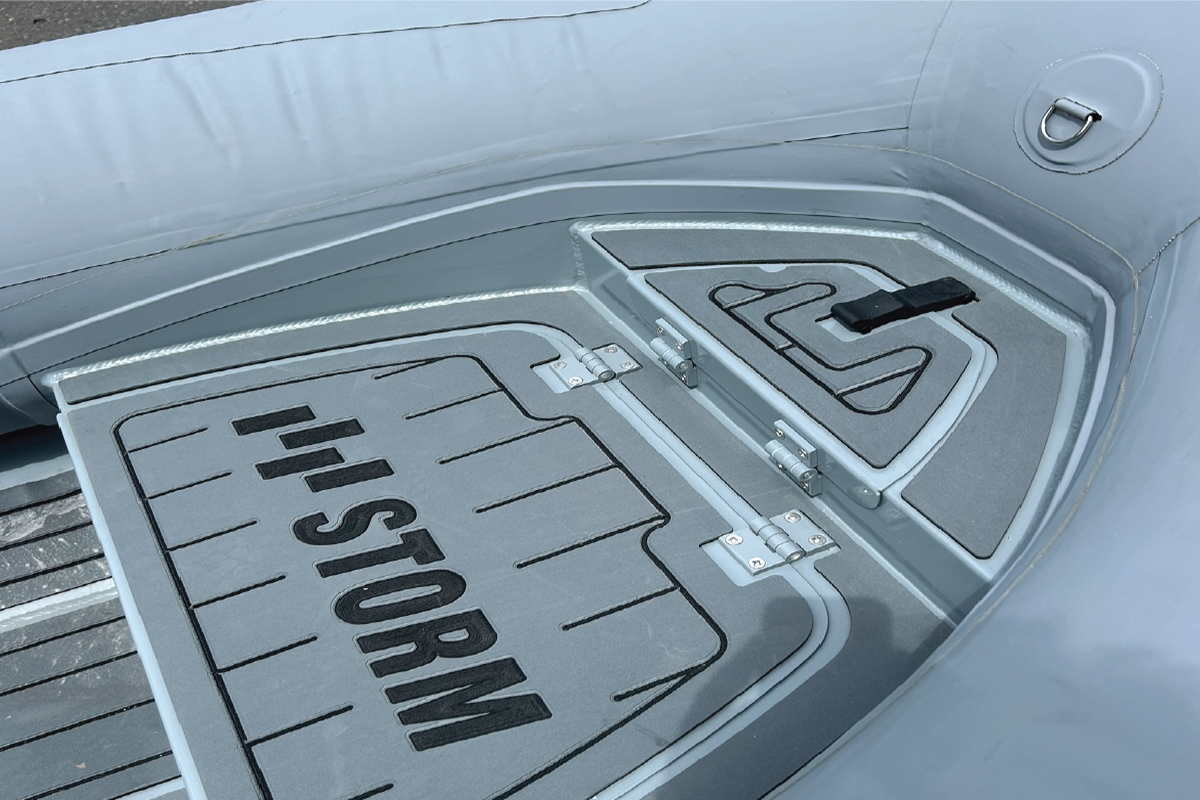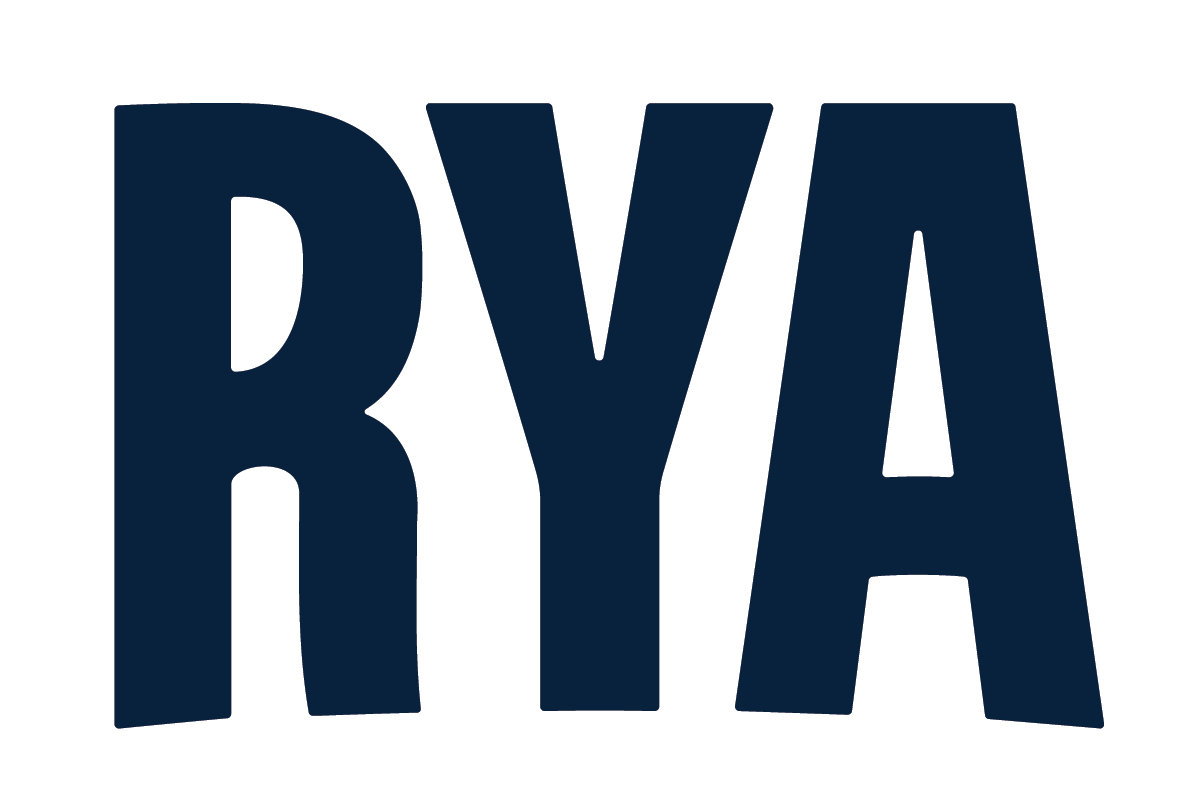Article: Is Hypalon or PVC better for RIBs?

Is Hypalon or PVC better for RIBs?
One of the age old questions of the inflatable boat world and marine industry is Hypalon (CSM) versus PVC. Is Hypalon or PVC better?
Cards on the table, we’re firmly in the Hypalon camp – there’s good reason why military inflatables almost universally use Hypalon – it’s tougher, has greater resistance to UV and temperature fluctuations and has super low maintenance requirements. This is why all of our RIBs and inflatables are manufactured using Hypalon tubes, with the exception of our VY24 Tender which is constructed using PVC.
In much of the world, RIBs and inflatable boats have emerged as the most versatile, robust and desirable type of vessel. They offer portability, ease of storage, and often deliver unrivalled performance on the water. However, not all inflatable boats are created equal. When it comes to material selection, the debate between Hypalon (CSM) and PVC (Polyvinyl Chloride) has gained significant attention. In this article, we will delve into the unique attributes of Hypalon as a superior material for inflatable boats, highlighting its advantages over PVC.
HYPALON – AN OVERVIEW
Hypalon, a synthetic rubber compound developed by DuPont, has earned its place as a premium choice for manufacturing inflatable boats. Its distinct composition, consisting of synthetic fabric and neoprene, imparts exceptional durability, UV resistance, and resilience against harsh marine environments. This synthetic rubber’s innate properties make it a standout material, ensuring inflatable boats constructed from it stand the test of time. This is one reason why Storm RIBS offer the longest warranty in the marine industry on all Hypalon boats.
ADVANTAGES OF HYPALON OVER PVC
Durability and Longevity: One of the most significant advantages of Hypalon over PVC is its superior durability. Hypalon’s robust composition provides resistance to abrasions, punctures, and chemicals, ensuring that it remains in pristine condition even in demanding conditions. This durability translates into a longer lifespan for Hypalon inflatable boats, making them a more sustainable and cost-effective investment.
UV Resistance: Exposure to sunlight and harsh weather conditions can deteriorate the quality of inflatable boat materials over time. Hypalon stands out due to its exceptional UV resistance. It can withstand prolonged exposure to sunlight without fading, cracking, or losing structural integrity. This property is crucial for maintaining the aesthetics and functionality of inflatable boats, particularly in regions with intense sun exposure.
Temperature Tolerance: Hypalon exhibits superior temperature tolerance compared to PVC. It remains flexible in a wide range of temperatures, from frigid cold to scorching heat. This flexibility ensures that Hypalon boats can perform optimally regardless of the weather, enhancing their usability and reliability in various environments.
Chemical Resistance: Inflatable boats often encounter various chemicals, including fuel, oils, and cleaning agents. Even the most careful mariner will experience a spill of petrol once in their boat ownership – Hypalon’s chemical resistance is a key advantage, as it prevents the material from degrading or deteriorating upon contact with these substances. This resistance ensures that the tube’s structural integrity and appearance remain unaffected over time.
Stability in Extreme Conditions: Whether navigating choppy waters or encountering rough terrain during transportation, Hypalon inflatable boats offer stability and resilience. The material’s ability to absorb shocks and impacts without compromising its structural integrity makes it an ideal choice for adventurous boaters seeking reliability in challenging conditions.
Low Maintenance Requirements: Owning an inflatable boat should be an enjoyable experience, not a burdensome chore. Hypalon’s low maintenance requirements contribute to this experience. Its resistance to mold, mildew, and staining simplifies cleaning and maintenance routines, ensuring that boat owners can spend more time on the water and less time on upkeep.
Aesthetic Appeal: Hypalon’s premium appearance adds to the overall aesthetic appeal of inflatable boats. The material’s matte finish exudes a high-end, professional look that stands out on the water. This aspect can be particularly appealing to those who value both performance and visual aesthetics.
CONCLUSION
When looking at ribs for sale, material selection plays a pivotal role in determining the vessel’s performance, longevity, and overall value. While both Hypalon and PVC are viable options, Hypalon emerges as a clear winner in terms of its advantages over PVC. Its unmatched durability, UV resistance, temperature tolerance, chemical resistance, stability in extreme conditions, low maintenance requirements, and aesthetic appeal make it the preferred choice for discerning boaters.
When investing in an inflatable boat for sale, it’s essential to consider not only the initial cost but also the long-term benefits and value. Hypalon’s ability to withstand the rigors of marine environments while maintaining its integrity and visual appeal positions it as the go-to material for those seeking the highest quality and performance in their inflatable boating experience.


